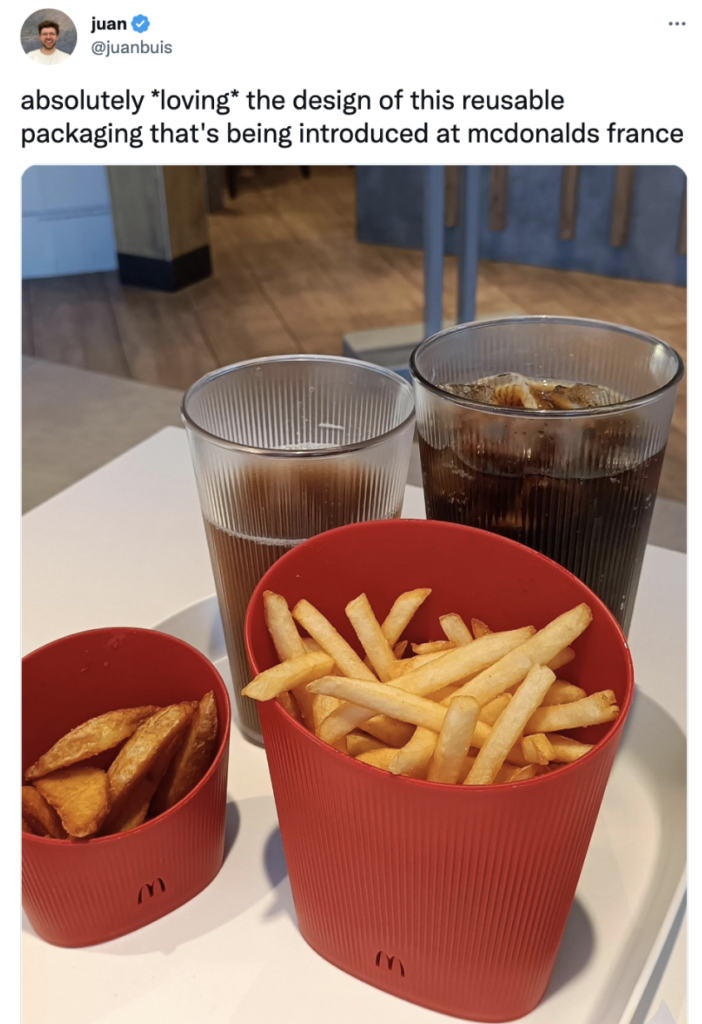The Climate Roundup 11.23.22

Hey climate heroes! Welcome to The Climate Roundup, where we round up the change, er the news about climate and the environment. As part of the Gen E community, we thank you for making climate action part of everyday life. (Reading this newsletter counts!)
The Space Race Is Back:

If you watch Apple TV+’s For All Mankind, (and if you don’t then you should because it’s awesome and will make you truly appreciate how amazing we have it here on Planet Earth), then you might be geeking out about NASA’s Artemis I mission to the Moon. Or is it just me? The show’s plot is becoming reality. Last week, NASA launched the first of three missions to the Moon to “establish a sustainable presence on the Moon to prepare for missions to Mars”. A key objective is to explore our favorite tethered rock for ice – just like the show! You can follow updates on the Artemis blog. And this Times article has a bunch of cool graphics showing flight paths and rocket designs. Image: NASA
A HOT AND COOL CLIMATE STARTUP:
♨️ Dandelion Energy raised $70M in funding for its geothermal heating and cooling system for residential homes in the Northeast. Their technology leverages the Earth’s constant temperature five feet underground and transfers heat between air in the home and the ground for year round low-carbon powered temps.
AND NOW, FINAL WORDS ON COP:
🧑⚖️ #COP27 is over and even I am sick of hearing about this annual meeting of global decision makers on climate. It’s the longest planning session of all time – 27 years and counting of pointing fingers and making plans to cut emissions. It’s high time this summit shifts focus to reporting progress and results on THE ONE most important global KPI: reaching zero emissions by 2050, with a mandatory 45% drop by 2030. Agenda done – you’re welcome COP28. But for now, let’s close out the COP talk with the main takeaways and some opining:
🏭 Arguably the biggest disappointment this year was the refusal to lock-in a global phase-down of all fossil fuels. To reach zero emissions and have a shot at limiting warming to 1.5 degrees, we have to stop burning fossil fuels, which include oil, gas, and coal. Current language only agrees to a phase-down of coal. But props to our home country for fighting til the bitter end for a formal end to ALL fossil fuels. Until next year.
🏦 Multilateral development banks and international financial institutions (like the World Bank and IMF) are on the verge of forced reforms to stop obsessing about their credit ratings and instead do what they were designed to do: aid in development, only now in the era of climate change. They are being called upon to align their funding with climate goals in order to release billions of dollars to then catalyze trillions more towards climate mitigation investments in developing countries. This would shift some of the funding burden off of countries like the U.S…
💰 Like in the case for the $100 billion annual commitment from wealthy countries to developing ones, which was agreed upon during COP15 in Copenhagen in 2009. That $100B number was supposed to be met by 2020, but hasn’t. However, I gotta say, I love U.S. climate envoy John Kerry’s take, referencing near achievement of the target expected this year, OH on a Bloomberg Green newsletter: “When I got 90-something on a test at school, I thought I did pretty well.” Burn.
💶 The latest climate buzz-phrase is “loss and damage”, which is the big headline to come out of the conference. Its premise is that rich countries should cover the costs of losses and damages incurred by poor countries when they’re hit with a climate-related natural disaster. Up until now, the U.S. has resisted due to anticipated exposure to a landslide of lawsuits from countries wanting to get paid. It is true that we own the rights to the largest share of cumulative historical emissions, and historical emissions are causing the changes in climate we are seeing now. Well, a Loss And Damage Fund was established, and developed nations will be expected to contribute to it (with a promise of immunity from those lawsuits). Details on how it’ll be funded and managed are tbd. Personally, I think fossil fuel companies should be the ones funding these initiatives. The International Energy Agency estimates global income for oil and gas companies will be $4 trillion this year. The bottom line on that bottom line is that pollution profits should be spent on climate solutions.
🇨🇳 Lastly, I want to highlight an important yet unsurprising reality of these UN climate summits: China’s free ride. The UN classifies China as a developing country, a highly questionable status for the second largest economy in the world. As a developing country, China is shielded from paying into multi-national climate funds created to help poor countries transition to carbon-free energy, and coming soon, for disaster aid. It also means China is eligible to receive money from these funds. The dynamic duo of the U.S. and the EU are pushing to right these wrongs and force more responsibility onto the planet’s worst climate offender. Which is obviously China, responsible for nearly a third of the world’s emissions.
LE REUSABLES:

Thanks for reading! – Kristen



